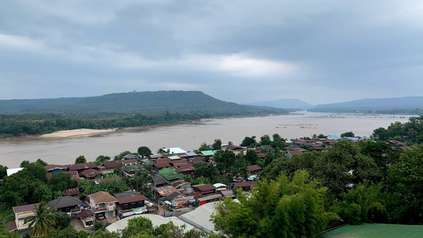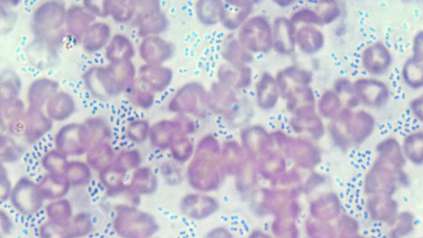Claire Chewapreecha wins the 2024 Nature inspiring women in science: Scientific Achievement prize
Listen to this news artice:
Listen to “Claire Chewapreecha wins the 2024 Nature inspiring women in science: Scientific Achievement prize” on Spreaker.
Claire Chewapreecha is a Wellcome International Intermediate Fellow at the Mahidol-Oxford Tropical Medicine Research Unit (MORU) where she leads the Melioidosis Genomic Group in Bangkok and is a lecturer at the Faculty of Tropical Medicine, Mahidol University. She also holds an International Fellow appointment at the Wellcome Sanger Institute.
Nature’s Inspiring Women in Science awards celebrate and support the achievements of women in science, and all those who work to encourage girls and young women to engage with STEM subjects and stay in STEM careers around the world.
Claire has won the prize within the Scientific Achievement category, which is a recognition of her academic work. Her research focuses on melioidosis, a neglected tropical disease that is estimated to affect 165,000 people worldwide each year, of whom over half die from the disease. Claire Chewapreecha began studying melioidosis after discovering the high mortality rate of this neglected disease during a visit to a hospital in Ubon, Northern Thailand. Melioidosis is caused by the bacterium, Burkholderia pseudomallei, which lives in soil and water in tropical and subtropical regions and enters human bodies through skin abrasions, ingestion or inhalation.
Dr Chewapreecha is on a mission to change things both in Thailand and beyond and has built global collaborations to study the disease and the bacterium that causes it. Earlier in the year, she and her team developed a new rapid test that could save lives by diagnosing patients in hours instead of days. Alongside the test, Claire is currently working with Professor Nick Thomson at the Sanger Institute, focusing on the genetics of Burkholderia pseudomallei. She is seeking to uncover the key to its virulence, and why it impacts some patients more than others.
“This award brings crucial attention to neglected tropical diseases like melioidosis, which heavily affect vulnerable populations yet receive limited research funding and global attention. Recognising our work underscores the need to address diseases that may be overlooked by mainstream scientific and funding agendas. For me, and other researchers in low and middle-income countries, this award challenges stereotypes and advocates for equitable research opportunities, highlighting the central role of local researchers when empowered in addressing diseases prevalent in their communities.”
Dr Claire Chewapreecha, Mahidol-Oxford Tropical Medicine Research Unit (MORU) Fellow, Thailand, and Wellcome Sanger Institute International Fellow
“Diversity of thought fuels innovation, so when women and girls are empowered to contribute their skills and talents in research we all benefit from the results. Science shapes the future and it is crucial that women are equally represented in research. We must ensure that girls and women see no limits to their aspirations.”
Dr Magdalena Skipper, Editor in Chief of Nature
“Claire’s research is critical to improving the lives of people in tropical areas who are at risk of contracting melioidosis. Her work puts this Neglected Tropical Disease, and its impact on communities in Northern Thailand, at the forefront of global health discussions. This award recognises her ongoing research commitment to understanding melioidosis and addresses the urgent need for solutions that can be accessible and scalable. It is a pleasure to see our International Fellows highlighted in prizes such as Nature’s and how they, as regional leaders, are training and paving the way for others in their countries and communities to thrive.”
Dr Sarah Hull, Head of Academic Programmes, Wellcome Sanger Institute





